As we look toward Sirens, we’re pleased to bring you exclusive interviews with this year’s brilliant Sirens Studio faculty. These conversations are a prelude to the workshops that these faculty will teach as part of the Studio later this year. Today, Sirens communication team member Faye Bi speaks with Casey Blair.
FAYE BI: If you had to describe your “reading profile” to a stranger (or to a bookseller, librarian, or other gatekeeper), what would you list as some of your favorite themes, subgenres, or tropes in fantasy literature? What makes a “Casey book”? (We know dragons and magical cats can’t be beat!)
CASEY BLAIR: These days the story features grabbing me most are ambition, irreverence, and radical compassion. Often in combination: There’s nothing quite as satisfying to me as a woman who doesn’t hesitate to dare to give the finger to anyone who would keep her down, who lifts up others as she rises, who understands from the start that she’s valuable, and who is unabashedly competent—as well as inspiring—by virtue of existing without shame in the world we live in and taking up narrative space.
You can probably tell by how I frame that that what I personally look for in any books are excellent characters—not necessarily likable, but depicted in nuanced and interesting ways. I’ll forgive silly plot holes and unrealistic world-building if I care about the characters’ journeys. The specific tropes I respond to are necessarily informed by how they have worked or failed for me in media I’ve consumed historically, and over the years my fantasy tastes have broadly morphed from “whatever shounen anime and epic fantasy I can find” to “shadowy worlds and darkness are Cool” to “holy shit The Goblin Emperor.” They’re all part of me: A shounen-passion-style protagonist who triumphs in spite of all odds through sheer determination is always going to speak to me; I’m a sucker for dark lords and secret guilds of assassins; and a character who can bring people together toward difficult growth and actively reckons with oppressive legacies is inspiring.
Ultimately, a Casey book is fun to read, makes me think, and prominently features women characters owning their power. It’s hopeful without making light of real problems. If you have an action-packed story about a woman burning down the patriarchy with magic, I’m pretty much set.
You know what, I feel like you planned this, but now I have a book list for you: Women in SFF Who Dream Big Dreams and Don’t Let Anyone Stop Them. Those are Casey books. [Ed. note: Coming soon to the Sirens blog!]
FAYE: Speaking of dragons—because we know you love them—what are some of your favorite, semi-recent depictions of dragons in fantasy? How do they compare to the dragon books you read as a child?
CASEY: What a question. SO many semi-recent dragons, and I’m sure I’ll miss some anyway but here we go: the Heartstrikers series by Rachel Aaron, Tea Dragon Society by Katie O’Neill, Where the Mountain Meets the Moon by Grace Lin, The Beast Player by Nahoko Uehashi, The Forbidden Library series by Django Wexler, the Wings of Fire series by Tui Sutherland, The Dragon with a Chocolate Heart by Stephanie Burgis, Given by Nandi Taylor, and the Chronicles of Elantra series by Michelle Sagara.
As for how they compare, in general the dragons of my childhood were less accessible than dragons often are now. Like, you weren’t going to be friends with Smaug and Shenron, and even dragons in Harry Potter were mostly separate from human concerns. You certainly weren’t going to presume some understanding of their internal emotional state! Whereas many semi-recent dragons are treated more like characters than physical embodiments of natural forces and magic. There’s certainly space for all kinds, but I do like this trend because it increases the dragons’ agency. And I typically find increased character agency makes stories more narratively satisfying.
Mind you, this isn’t to say all dragon books were like that in my childhood—like, Dealing with Dragons by Patricia Wrede existed, though I tragically didn’t know about Kazul until much later. But when we talk about trends, I think that’s the major difference.
FAYE: You are also the author of the online serial, the delightful Tea Princess Chronicles, which has baby dragons, a tea shop, a princess who finds a new purpose in life, and best of all, a community of awesome women. After nearly three years, what has surprised you most about this publishing journey? And please match a tea to each book in your trilogy—and tell us why.
CASEY: What’s surprised me most about this journey has been the reception, and that it has largely reflected the same earnestness as the story. Tea Princess Chronicles aims to be hopeful and validating by acknowledging bullshit is real and then doing something about it—and gradually empowering more and more people to work together to fix bigger and more entrenched injustices. A really broad spectrum of people have responded to that core. But someone once described this series to her husband as “fantasy for chicks,” and she would have been surprised to hear that the majority of the most vocal supporters of this story—that unabashedly focuses on things like female friendship and cozy domesticity—actually present masculine.
So many people over my life have told me that I couldn’t be a real shounen anime or action movie fan—that they’re too violent for a girl, especially one who presents as femme as I do; that they’re not romantic, aka for girls; and that I must be pretending. You know, classic fake geek girl nonsense. But I am here to tell you that the dudeliest of dudes will read romance and like it. We don’t have to force people into categories, actually! A lot of publishing wisdom advises authors to write for a specific reader, but I think this approach can actually do people a disservice: Targeting readers, and what people respond to in stories, is more complex than that. But it’s been truly lovely that people who needed this story found it, and I hope that will be true of everything I write.
As far as matching tea goes, another surprise has been how many people now assume I’m a tea expert! My friends, I know enough to fake what someone who actually knows about tea would look for, but I am writing MAGIC tea. (I am a tea enthusiast only: It’s not that I can’t appreciate the difference with a really special cup of tea, but I am also happy to drink tea that comes pre-bagged and is extremely over-steeped when I inevitably forget about it and have to reheat my cup. I will drink All The Tea. Except for chamomile, so please enjoy my share of that one.)
So the only possible answer here is for me to give you magic tea recommendations in line with the theme of each book. And each of these fantasy ingredients has a short story to go with it on the serial website. =)
For A Coup of Tea, it has to be the ever starbloom green tea blend. It’s a very smooth flavor but also a blooming tea that, once open, constantly changes form and makes every second worth attending to. This is the book where the heroine learns how to live in the world outside the royal court and discovers new possibilities in the smallest moments.
For Tea Set and Match, I’ll go with a red tea brewed with lellabean extract and honey, which has a full, robust flavor. This book is about fostering the connections between people, and this is a tea for feeling rooted but not tied, and what that combination of freedom and community support makes possible.
For Royal Tea Service, I’d go with a white tea with a drop of dreamreacher, light like floating but with a zing at the back. This is a tea for believing in your power to achieve whatever you can imagine without limit, and doing it.
FAYE: You love talking about books! In your time as an indie bookseller, which new-at-the-time or little-known book(s) did you make it your mission to hand-sell? What makes a book talk successful?
CASEY: Not including some of the dragon books above: A Memory Called Empire by Arkady Martine, Mirage by Somaiya Daud, The Goblin Emperor by Katherine Addison, Witchmark by C.L. Polk, An Unkindness of Magicians by Kat Howard, Empire of Sand by Tasha Suri, The Black God’s Drums by P. Djèlí Clark, Empress of Forever by Max Gladstone, Ninefox Gambit by Yoon Ha Lee, Aru Shah and the End of Time by Roshani Chokshi, The Epic Crush of Genie Lo by F.C. Yee, Polaris Rising by Jessie Mihalik, and In Other Lands by Sarah Rees Brennan. I know it’s a good book talk when I can literally sell it every single time I try. It’s always satisfying when I nail that from the get-go, but sometimes it takes me more tries to find the right angle to connect with people. Ultimately that’s what I’m trying to do: Connect a reader to a book they’ll love.
Book talking involves first understanding what a reader is actually looking for, which is often not what they say they are looking for. Pro tip: ask them what books/authors they’ve read and liked rather than what kind of book they want.
The second important part is being able to isolate what makes a book unique. It’s not enough to say it has great world-building—what kind of world-building? Does the book have magical action scenes that would translate epically to film, or numinous magical struggles focusing on interiority? Is this a light-hearted adventure or grimdark? Dry humor or silly humor? The same person can like multiple things, but if they don’t want to have to think about consequences, I’m not giving them The Goblin Emperor even though it’s a brilliant book that changed me. That’s not how targeting audience works. If you don’t pay attention to what someone actually wants or cares about, you’ll only get to give them a recommendation once.
Those two pieces, weirdly enough, seem to be what a lot of people miss. You have to understand the books, and you have to understand the reader’s interests. I can successfully recommend (by which I mean, people acquire them and later tell me they liked them) plenty of books I didn’t actually enjoy based on being able to isolate and match those features.
But the other piece is understanding at some level what people think they’re interested in. If you keep talking about a brilliant trope subversion to someone who doesn’t know they like that, you’re not going to get very far.
FAYE: A fellow Siren once described one of your Sirens papers as “incisive thoughts about intersectional feminism delivered with pointed and precise fury.” We can’t be more excited about your workshop intensive for readers titled “Yeet the Patriarchy: How Fantasy Stories Can Undermine Systemic Oppression” as part of the Sirens Studio. Would you please give us a preview of what Studio attendees can expect to discuss and learn?
CASEY: Absolutely. I feel like I’ve been tiptoeing around facets of this topic with papers at Sirens for a while, so I’m excited to just dive in and be like, fuck it, we are looking at patriarchy as a whole, on a broader level, and how to actually deal with it in our fantasy stories.
I read so many books that are clearly trying to be feminist but only managing the level of “girls can wear pants too,” which, okay, baby steps matter, but also very obvious and not sufficient; it’s a shallow level of engagement that often misses how institutionalized oppression works entirely. It’s not enough for one girl to be so awesome she gets to wear pants, because patriarchy will always adapt to defend itself: That’s how we get exceptionalism and “you’re not like other girls,” which, spoilers, is also sexist!
But how can stories actually meaningfully and dramatically—as in, in a narratively satisfying way that can be depicted through prose—say anything about sexism as a whole? If we accept that sexism is systemic (uh, further spoilers: we will indeed be starting with that premise), how can a single character, or story, make a difference that acknowledges the layered ways the system works and addresses it in a way that isn’t reductive?
There’s not one simple answer—I mean, obviously; systems are entrenched and complicated. But we’re going to talk about the challenges of depicting communal action. We’re going to talk about not erasing traditionally feminine-coded modes of power, and not shoehorning only women into them. We’re going to talk about how we talk about stories, what gets termed “universal” or “fun” or “narratively satisfying” and why, and how that translates financially and intersectionally. We’re going to talk about how stories shape our understanding of what is, what is possible, and what is desired, and how in so doing they reinforce or undermine sexism. Stories train readers, and we can use that—we can also learn how to understand what a book is in fact doing, and we can learn to reach for and demand different kinds of stories.
Not dealing a single blow to patriarchy that it can watch for and defend against, but unraveling it with a thousand cuts from every direction.
FAYE: Sirens is about discussing and deconstructing both gender and fantasy literature. Would you please tell us about a woman or nonbinary person—a family member, a friend, a reader, an author, an editor, a character, anyone—who has changed your life?
CASEY: Sirens was the first con I ever attended, back in 2009 when I was 20 years old. I arrived at the welcome banquet apparently way earlier than anyone else but the staff, so I dropped my stuff at a seat and desperately lingered over choosing desserts from the buffet so I wouldn’t be sitting alone at a table having obviously missed the memo on when Cool Folk Who Know How to Con show up. When I finally returned, other people had thankfully camped there, and in short order I was enthusiastically analyzing Saiyuki (the anime, not the epic) with a person whose nametag I eventually looked at and struggled not to do a double-take when it read Sherwood Smith—one of the guests of honor.
For Sherwood’s keynote, she eschewed the usual fantasy topics and instead burst out with an academic lecture on salon culture in 18th century France. It was amazing. At the ball when we were all dressed up, I asked to take a picture with her, and she asked, “Normal or funky chicken?” The only possible answer was, “Funky chicken, OBVIOUSLY,” so I have a fantastic picture doing the funky chicken in a ballgown with the first pro fantasy author I ever met.
I’ve had the pleasure of getting to know Sherwood better since then, and she is the best model I could have wished for the kind of author I want to be. On the artistic side, she has written everything under the SFF sun without limiting herself and done it all excellently. (In fact, Banner of the Damned was the first book I read with an explicitly asexual protagonist and helped me start connecting dots for myself, before pushes like #WeNeedDiverseBooks started improving the landscape of inclusivity.)
On the professional side, she doesn’t hide how smart she is, she doesn’t act like she’s better than anyone else and is always happy to learn, and she goes out of her way to support writers, with no disdain toward anyone less experienced, or self-published, or any of the many ways people often find themselves unwelcome or looked down on in SFF publishing spaces. I am lucky to have met a woman so early in my publishing journey who demonstrates the space she makes in her worlds, and I hope I can do the same.
Casey Blair writes adventurous fantasy novels for all ages, including the novella Consider the Dust and her cozy fantasy serial Tea Princess Chronicles. After graduating from Vassar College, her own adventures have included teaching English in rural Japan, attending the Viable Paradise residential science fiction and fantasy writing workshop, and working as an indie bookseller. She now lives in the Pacific Northwest and can be found dancing spontaneously, exploring forests around the world, or trapped under a cat. For more information, visit her website or her Twitter.
Faye Bi works as a publicity director in New York City and spends the rest of her time cycling, reading, pondering her next meal, and leading the Sirens communications team. She’s yet to read an immigrant story she hasn’t cried over and is equally happy in walkable cities and sprawling natural vistas.
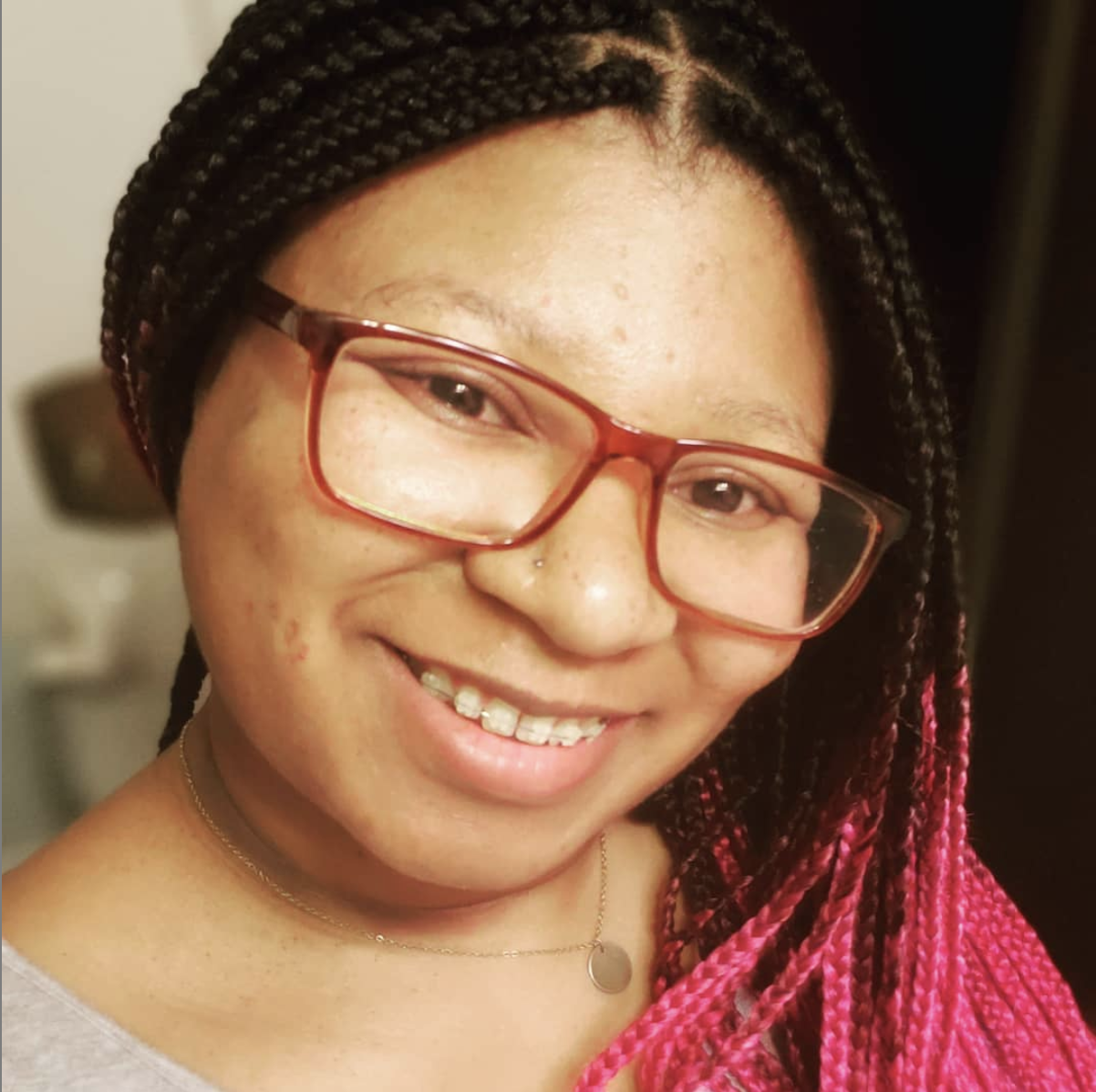




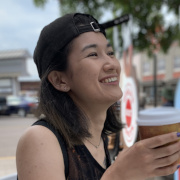
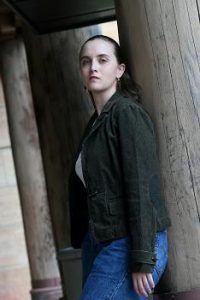
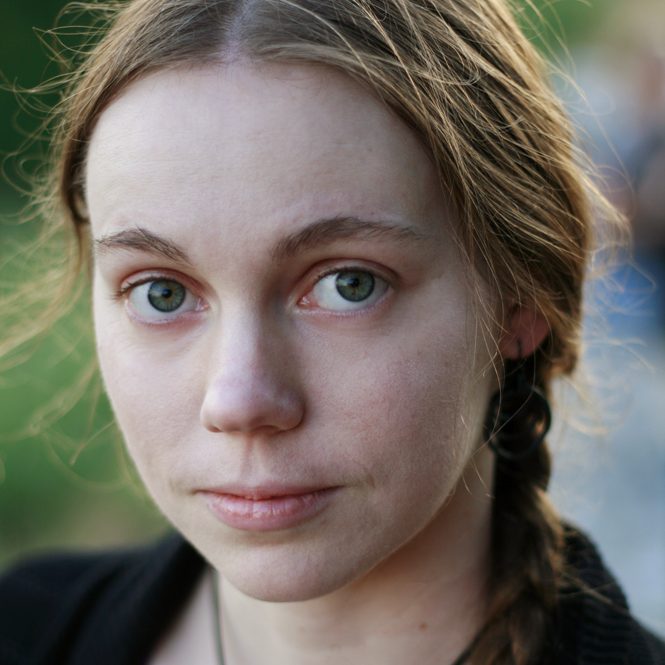

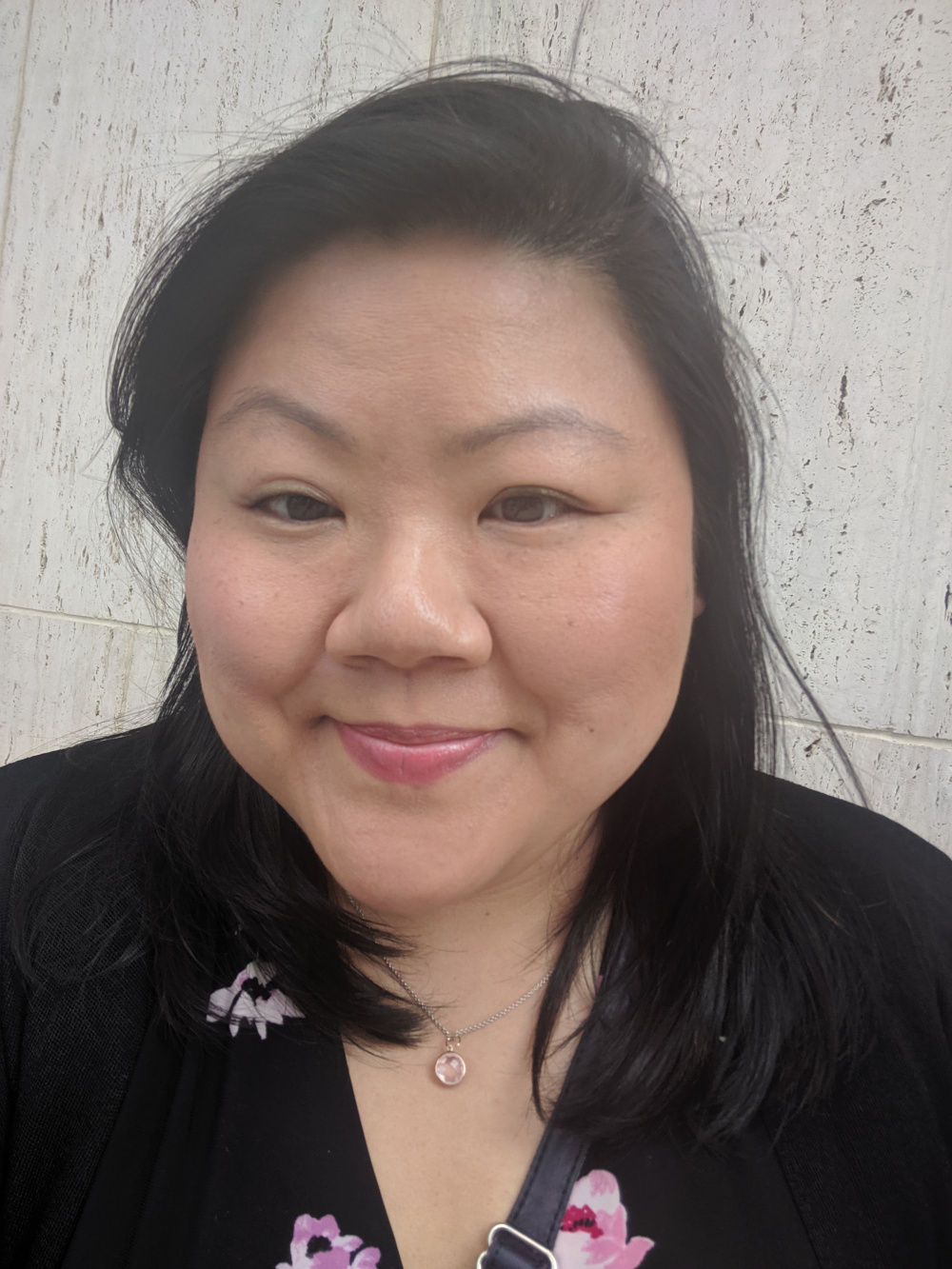
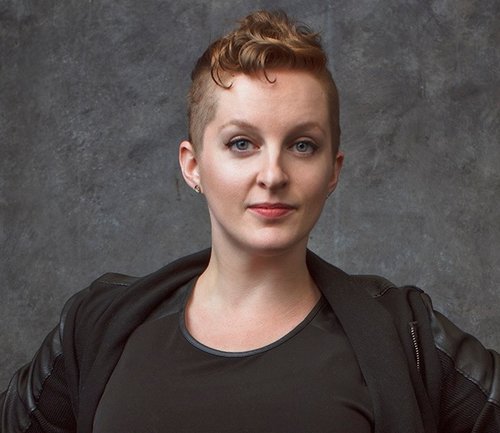
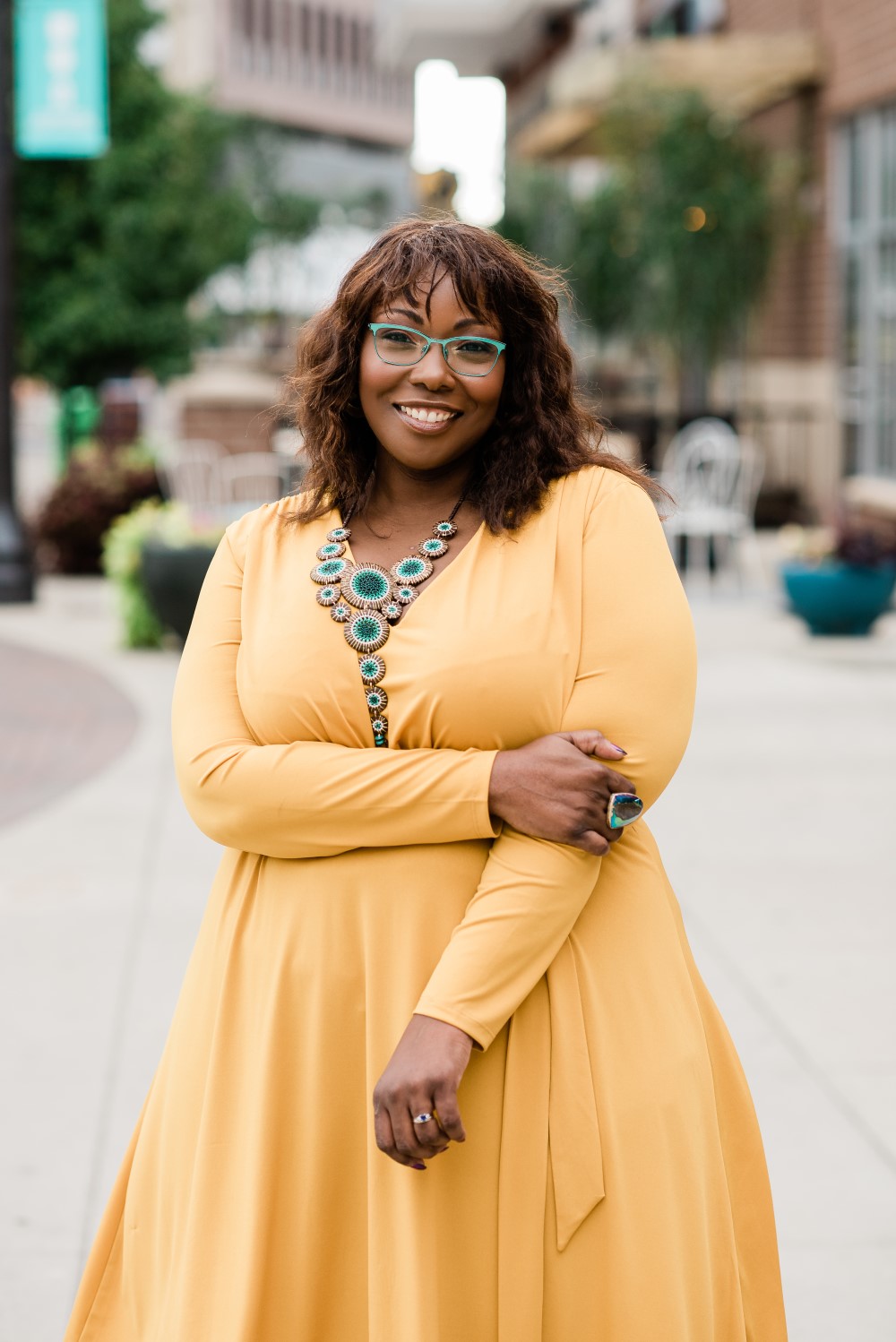



Connect with the Sirens community
Sign up for the Sirens newsletter